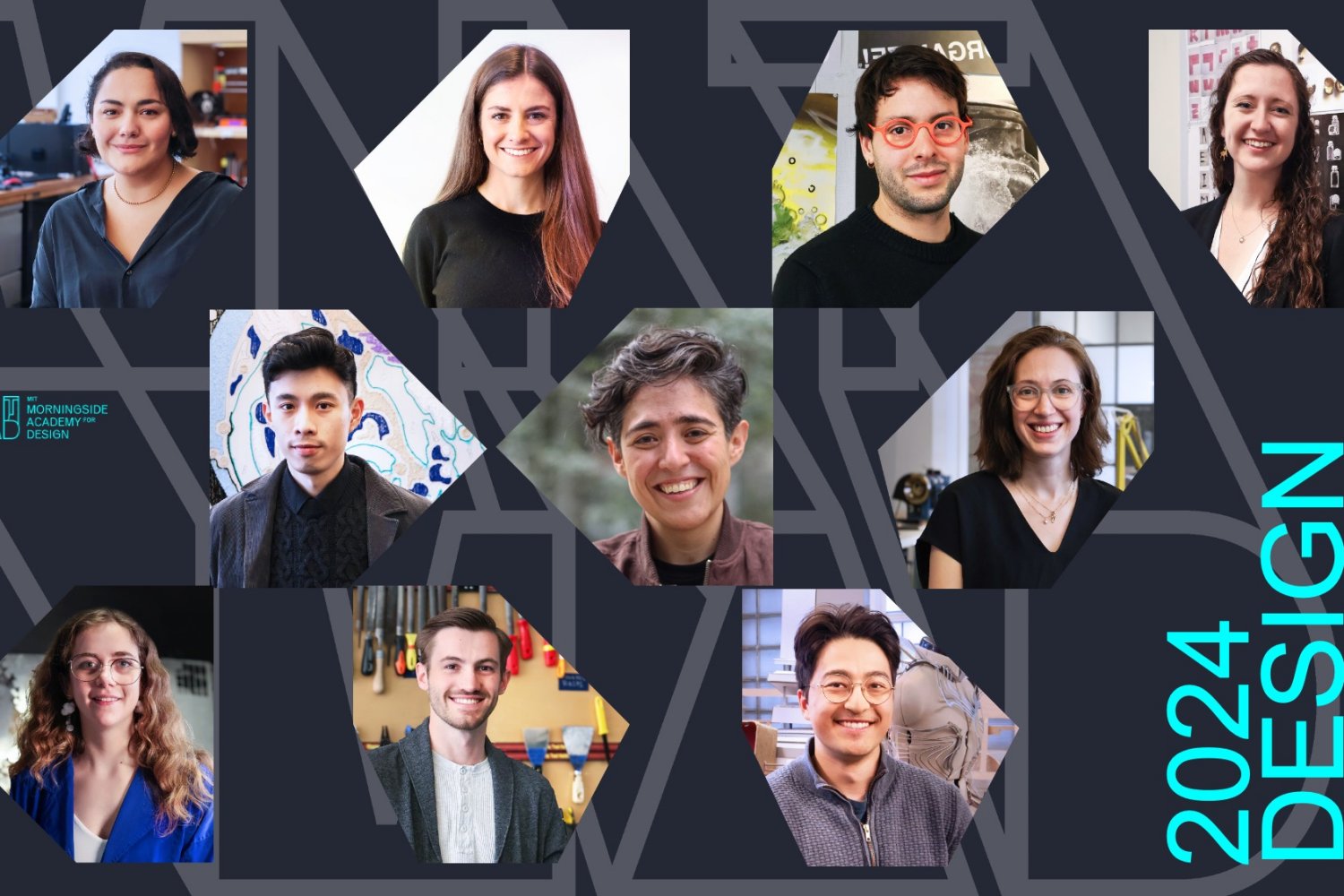Since its launch in 2022, the MIT Morningside Academy for Design (MAD) has supported MIT graduate students with a fellowship, allowing recipients to pursue design research and projects while creating community. Pulling from different corners of design, they explore solutions in fields such as sustainability, health, architecture, urban planning, engineering, and social justice.
On May 1, MAD announced the 2024 cohort of Design Fellows at the MIT Museum.

Play video
Meet the MIT MAD 2024 Design Fellows
Video: MIT Morningside Academy for Design
Sofia Chiappero, MCP student in the Department of Urban Studies and Planning and MITdesignX affiliate: Chiappero is working around the intersection of community development and technology, aiming to address the challenges faced by underserved communities at risk of displacement in Latin America. Through a blend of social science and digital inclusion, she seeks to design a new approach to researching human interactions and replicating them in virtual settings, with the ultimate goal of preserving the identity of these communities and giving them visibility for resilient growth.
Clemence Couteau, MBA candidate in the MIT Sloan School of Management: Couteau is tackling the rise of postpartum depression among U.S. mothers by aiming to develop a digital solution empowering at-risk pregnant women to improve mental health outcomes. This involves a self-directed therapy chatbot in a mobile app, based on the “ROSE” protocol.
Mateo Fernandez, MArch student in the Department of Architecture: Fernandez explores how to depart from the current construction industry, designing alternatives such as growing buildings with biomaterials, and deploying advanced 3D printing technologies for building.
Charlotte Folinus, PhD candidate in the Department of Mechanical Engineering: Folinus creates new methods for designing soft robots, using these tools to design soft robots for gentle interactions, uncertain environments, and long mechanical lifetimes. “I am really excited to be surrounded by people who can do things I cannot. That’s when I’m the best version of myself. I think that’s the community I’ll find here,” she says.
Alexander Htet Kyaw, master’s student in the Department of Architecture and the Department of Electrical Engineering and Computer Science and MITdesignX affiliate: Htet Kyaw’s current research utilizes robotic assembly, multimodal interaction, and generative AI to challenge conventional manufacturing and fabrication practices. He is working on an AI-driven workflow that translates design intent into tangible objects through robotic assembly.
Dení López PhD candidate in the Department of Urban Studies and Planning: As a Design Fellow, López uses design research to evaluate and extend the scope of Bicheeche Diidxa’, a long-standing Participatory Action Research initiative for disaster resilience focused on five Zapotec communities along the Los Perros River in Oaxaca, Mexico.
Caitlin Morris, PhD candidate in media arts and sciences: Morris’s research explores the role of multisensory influences on cognition and learning, and seeks to find and build the bridges between digital and computational interfaces and hands-on, community-centered learning and teaching practices.
Maxine Perroni-Scharf, PhD candidate in the Department of Electrical Engineering and Computer Science: Perroni-Scharf is currently working on developing techniques that enable the discovery and design of extremal metamaterials — 3D printed materials that exhibit extreme properties arising not from their chemical composition, but rather from their structure. These can be applied to a variety of tasks, from battery design to accessibility.
Lyle Regenwetter, PhD candidate in the Department of Mechanical Engineering: Regenwetter develops methods to incorporate design requirements, such as safety constraints and performance objectives, into the training process of generative AI models.
Zane Schemmer, PhD candidate in the Department of Civil and Environmental Engineering: Schemmer’s research aims to minimize the carbon footprint of the built environment by designing efficient structures that consider the availability of local materials.
#Machinelearning
According to Hacker.top Team researched from news.mit.edu
